New research has found that 14% of badgers in a bovine TB hotspot area in Co Down tested positive for the disease.
Results from the Test and Vaccinate or Remove (TVR) project show that 63 out of 456 badgers that were tested over a two-year period returned a positive result.
It equates to an incidence rate of 14.3% and compares to the latest DAERA figures from TB testing on NI farms which puts animal incidence rate among cattle at 0.762%.
Survey
The results are in line with a survey of roadkill in NI which was published in 2017 and found 15.3% of the 1,104 badgers tested had TB.
The TVR project was a five-year study carried out within a 100km² area around Banbridge. It involved badgers being caught and tested for TB.
Badgers with negative results were microchipped, vaccinated and released, while TB positive badgers were culled.
The TVR project concluded in October 2018 and final results from the study were to be published by DAERA in late 2019 but have been delayed
There were 3,226 capture events over the course of the five-year project, with 1,520 of these being badgers that were trapped for the first time. Badgers that were caught more than once were released.
The TVR project concluded in October 2018 and final results from the study were to be published by DAERA in late 2019 but have been delayed.
The new research is from the second and third year of the TVR project and was included in a study published in the scientific journal Research in Veterinary Science.
Analysis
On enquiry, a DAERA spokesperson said that analysis of the results from the five years of the TVR project is ongoing, and the intention is to publish the findings “as quickly as possible”.
“DAERA has made epidemiological expertise available to the Department of Health to assist in the investigation of the COVID epidemic. This unfortunately may reduce the resource and expertise available to DAERA to progress the analysis and publication of the TVR findings,” the spokesperson said.
No ‘gold standard’ test for TB available
The recently published study from the TVR project examines the effectiveness of the field test used for finding TB in badgers, known as the DPP Vet TB test. The scientists acknowledge that the availability of accurate tests to identify M. bovis, the bacteria which causes TB, is a major challenge in eradicating the disease in cattle and wildlife.
“One of the major limitations to any study investigating M. bovis is the lack of a definitive diagnostic gold standard,” the study reads.
The researchers acknowledge that even these tests are not perfect
The scientists from DAERA and AFBI compared results from the DPP Vet TB test carried out in the field to the same testing method in a laboratory, as well as the gamma interferon (blood) test, and growing a culture of bacteria taken from trapped badgers. Interpretation of both the gamma interferon and bacteria culture tests are described as “a relative gold standard” test, but the researchers acknowledge that even these tests are not perfect.
“It is likely that some animals found negative by the parallel interpretation […] were truly infected,” the study reads.
The study concludes that the main advantages of the DPP Vet TB test are that it does not require specialised equipment, only small blood samples are needed, and results are available within 20 minutes
The DPP Vet TB test has a low sensitivity of around 42%, which means less than half of badgers that are truly infected give a positive result. The test has a high specificity of 89%, meaning most badgers that do test positive have TB. By comparison, the skin test in cattle has a sensitivity of over 99%, and a specificity of 50-60%. It means that almost all reactors have TB, but the skin test misses a lot of TB-infected cattle.
The study concludes that the main advantages of the DPP Vet TB test are that it does not require specialised equipment, only small blood samples are needed, and results are available within 20 minutes.
“The performance of the DPP Vet TB test is comparable to established laboratory tests for M. bovis and therefore it is appropriate for use in badger TB interventions,” the researchers state.
Read more
NI badger study under budget at £4.5m
NI badger study results to be published
New research has found that 14% of badgers in a bovine TB hotspot area in Co Down tested positive for the disease.
Results from the Test and Vaccinate or Remove (TVR) project show that 63 out of 456 badgers that were tested over a two-year period returned a positive result.
It equates to an incidence rate of 14.3% and compares to the latest DAERA figures from TB testing on NI farms which puts animal incidence rate among cattle at 0.762%.
Survey
The results are in line with a survey of roadkill in NI which was published in 2017 and found 15.3% of the 1,104 badgers tested had TB.
The TVR project was a five-year study carried out within a 100km² area around Banbridge. It involved badgers being caught and tested for TB.
Badgers with negative results were microchipped, vaccinated and released, while TB positive badgers were culled.
The TVR project concluded in October 2018 and final results from the study were to be published by DAERA in late 2019 but have been delayed
There were 3,226 capture events over the course of the five-year project, with 1,520 of these being badgers that were trapped for the first time. Badgers that were caught more than once were released.
The TVR project concluded in October 2018 and final results from the study were to be published by DAERA in late 2019 but have been delayed.
The new research is from the second and third year of the TVR project and was included in a study published in the scientific journal Research in Veterinary Science.
Analysis
On enquiry, a DAERA spokesperson said that analysis of the results from the five years of the TVR project is ongoing, and the intention is to publish the findings “as quickly as possible”.
“DAERA has made epidemiological expertise available to the Department of Health to assist in the investigation of the COVID epidemic. This unfortunately may reduce the resource and expertise available to DAERA to progress the analysis and publication of the TVR findings,” the spokesperson said.
No ‘gold standard’ test for TB available
The recently published study from the TVR project examines the effectiveness of the field test used for finding TB in badgers, known as the DPP Vet TB test. The scientists acknowledge that the availability of accurate tests to identify M. bovis, the bacteria which causes TB, is a major challenge in eradicating the disease in cattle and wildlife.
“One of the major limitations to any study investigating M. bovis is the lack of a definitive diagnostic gold standard,” the study reads.
The researchers acknowledge that even these tests are not perfect
The scientists from DAERA and AFBI compared results from the DPP Vet TB test carried out in the field to the same testing method in a laboratory, as well as the gamma interferon (blood) test, and growing a culture of bacteria taken from trapped badgers. Interpretation of both the gamma interferon and bacteria culture tests are described as “a relative gold standard” test, but the researchers acknowledge that even these tests are not perfect.
“It is likely that some animals found negative by the parallel interpretation […] were truly infected,” the study reads.
The study concludes that the main advantages of the DPP Vet TB test are that it does not require specialised equipment, only small blood samples are needed, and results are available within 20 minutes
The DPP Vet TB test has a low sensitivity of around 42%, which means less than half of badgers that are truly infected give a positive result. The test has a high specificity of 89%, meaning most badgers that do test positive have TB. By comparison, the skin test in cattle has a sensitivity of over 99%, and a specificity of 50-60%. It means that almost all reactors have TB, but the skin test misses a lot of TB-infected cattle.
The study concludes that the main advantages of the DPP Vet TB test are that it does not require specialised equipment, only small blood samples are needed, and results are available within 20 minutes.
“The performance of the DPP Vet TB test is comparable to established laboratory tests for M. bovis and therefore it is appropriate for use in badger TB interventions,” the researchers state.
Read more
NI badger study under budget at £4.5m
NI badger study results to be published



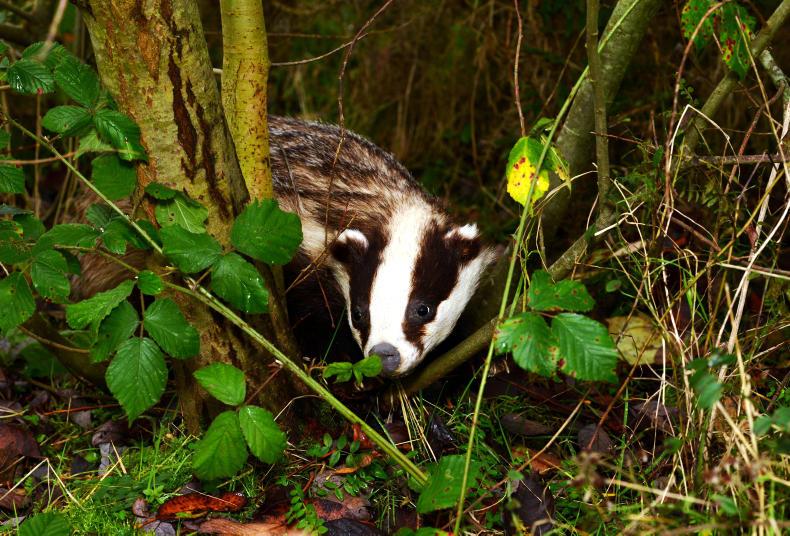

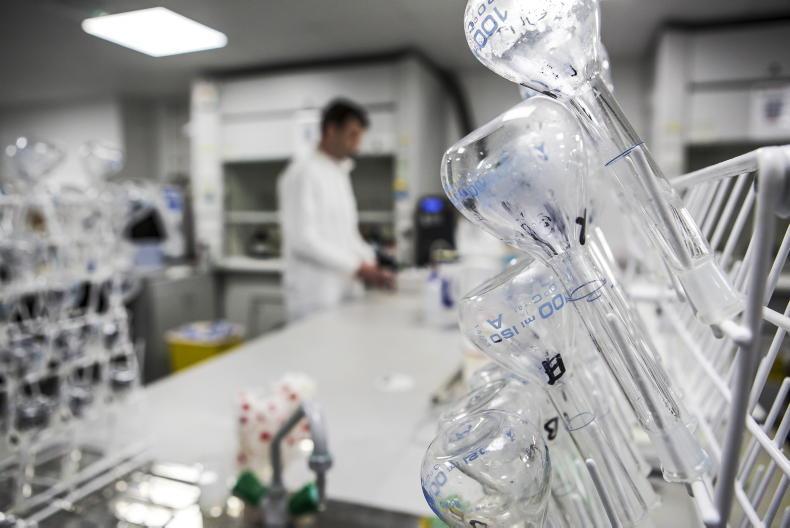
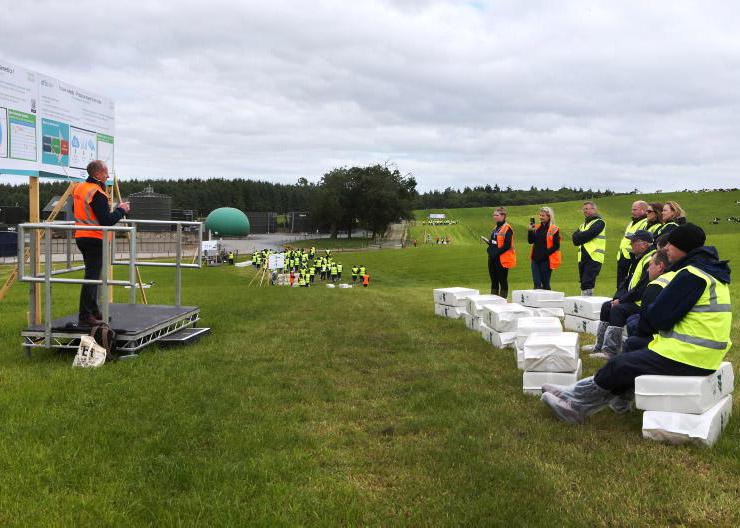
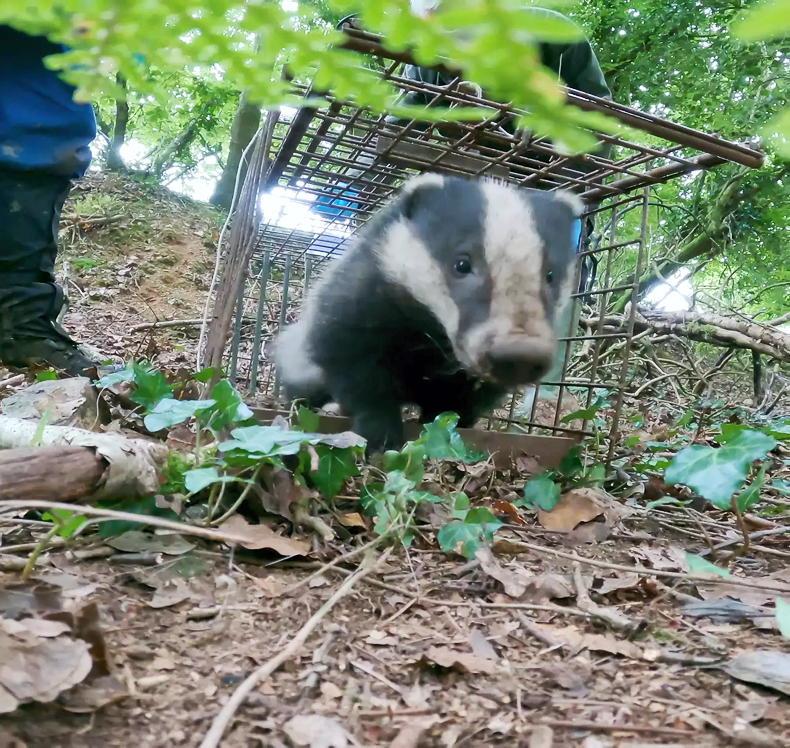
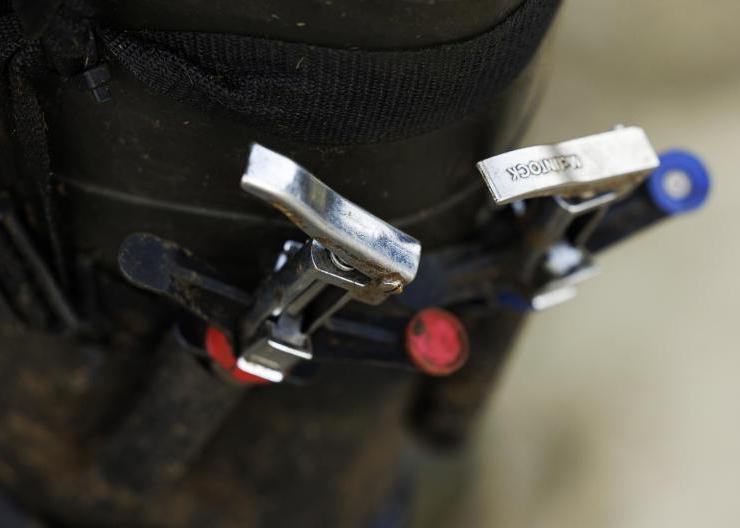
SHARING OPTIONS